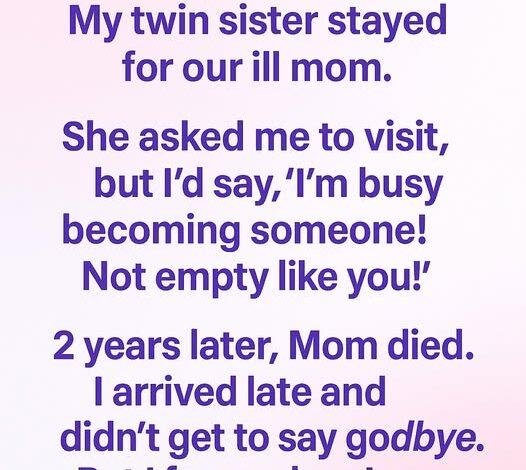I was pushed into the lake by my grandson while he laughed, Stop overreacting!

When you grow old, people assume weakness. They speak softer, slower, as if your mind is a ticking clock about to stop. I learned that long ago — and I learned how to use it.
My grandson Daniel always had charm. The kind of smile that convinced waiters to bring him free desserts and teachers to overlook missed homework. But underneath that charm was hunger — the quiet, insidious kind that doesn’t crave food, but control.
It started subtly. “Grandma, you shouldn’t worry about your bills,” he’d say, taking envelopes from my hands. “Let us handle it.” His wife, Paula, would nod, all sympathy and fake concern. “You deserve rest now,” she’d add, sugar in her voice, poison underneath.
They wanted my estate — every account, every property, every memory my late husband and I had built together. But I’d built empires before; I knew a hostile takeover when I saw one.
So I played along.
For weeks, I let them believe I was slipping. I misplaced my glasses, left the kettle boiling, and once called Daniel by his grandfather’s name. Paula’s pitying smile grew wider with every act. Daniel, ever the opportunist, began planning his move.
“I think it’s time we consider a power of attorney,” he told me one evening, his tone rehearsed. “Just for your protection, of course.”
I nodded, feigning confusion. “Oh, that’s very kind, dear.”
They thought they were brilliant. I almost admired their confidence — almost.
What they didn’t know was that I’d already spoken to my lawyer, the one my husband and I trusted for decades. My assets — the accounts, the company shares, the property deeds — were already transferred into an irrevocable trust, one that couldn’t be touched or altered without my explicit consent. The trust was managed by a confidant I’d chosen years ago for this exact reason.
But I wasn’t done. I needed proof — undeniable evidence of their greed.
So I slipped a small voice recorder into my cardigan pocket. Over the next few weeks, I recorded everything — their whispers about selling my house, their laughter as they joked about “how much longer she’ll last,” even Daniel’s casual brag about “finally getting what’s his.”
Every cruel word became another nail in their coffin.
Then came the day of the supposed signing. We met in the lawyer’s office, tension heavy enough to cut. Paula sat with her legs crossed, her perfume thick and artificial. Daniel smiled, confident, as he slid the papers toward me.
“These are just standard documents, Grandma,” he said gently. “You trust me, don’t you?”
“Oh, of course,” I murmured, letting my hand tremble as I picked up the pen. I hesitated — just long enough for him to lean forward. Then I signed.
They thought it was over. They thought the empire was theirs.
For three days, I played the part — confused, meek, dependent. Then, suddenly, everything shifted. Daniel stormed into my house, his face pale with fury.
“What did you do?” he shouted.
“Whatever do you mean, dear?” I asked sweetly.
“The accounts — they’re empty! There’s nothing! You tricked us!”
“Oh, Daniel,” I said calmly, setting my teacup down. “You really should’ve read the documents more carefully.”
His expression twisted from shock to rage. Paula appeared behind him, her mask of politeness gone. “You can’t do this! We’re family!”
“Family?” I repeated quietly. “Family doesn’t scheme behind your back. Family doesn’t record you plotting to fake my signature. Family doesn’t laugh about how much they’ll inherit when I’m gone.”
Their eyes widened. That’s when I showed them the voice recorder.
For a moment, silence. Then Daniel lunged forward, but stopped when the police car pulled into the driveway.
“You called the police?” he hissed.
“Oh, I didn’t have to,” I replied. “Your little argument at the bank made quite the impression. They called first.”
By the time the officers entered, the façade had collapsed. The polite grandson and his doting wife were gone, replaced by two desperate people trapped by their own greed.
I handed over everything — the recordings, the bank statements, the trust documents. The officers listened patiently, their faces grim as the truth unfolded.
In the end, Daniel and Paula were charged with attempted financial exploitation and elder abuse. Their lawyer tried to argue it was a misunderstanding, but greed leaves fingerprints — and mine were clean.
When the dust settled, I sat alone in the quiet house my husband and I built brick by brick. For the first time in months, I felt peace. The empire was intact. My independence remained mine.
A week later, my neighbor stopped by with cookies. “You’re such a strong woman,” she said. “Most people your age would’ve been crushed.”
I smiled faintly. “I’ve been underestimated all my life. It’s one of my favorite weapons.”
That evening, I stood by the lake behind my house — the same lake where Daniel once pushed me in as a child, laughing while I splashed and sputtered. “Stop overreacting, Grandma!” he’d said then, just a joke. But it wasn’t. It was a warning of who he’d grow up to be.
Now, as the water shimmered under the setting sun, I felt no anger. Only clarity.
I’d seen the full circle of greed — how it eats away at people from the inside until all that’s left is emptiness. And I’d learned something else too: getting older doesn’t mean growing weaker. It means learning when to stop pretending and start fighting smart.
I still bake on Sundays. I still forget my glasses sometimes — on purpose, just to keep them guessing. But I no longer let anyone mistake kindness for weakness.
Because in the end, I didn’t just keep my fortune. I kept my dignity.
And that, more than anything, was what they could never take from me.